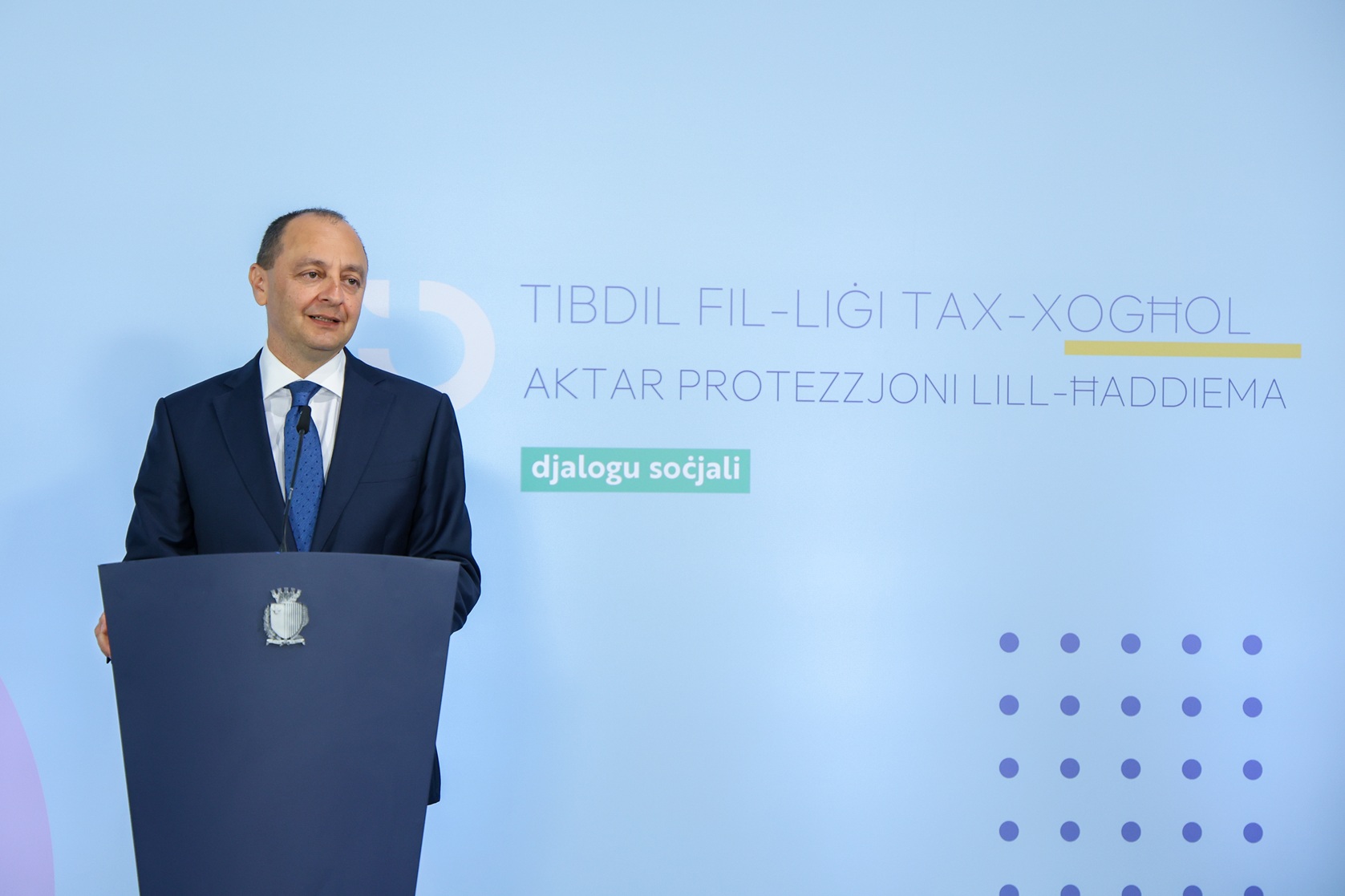In a bid to introduce greater seriousness and fairness in the world of work, the Maltese Government has announced changes to labour law that will see penalties significantly increased for employers who violate workers’ rights.
The legal reform was announced during a press conference addressed by Parliamentary Secretary for Social Dialogue Andy Ellul, who described the move as another crucial step in strengthening worker protection in Malta’s labour market.
Parliamentary Secretary Ellul explained that, under the current law, cases of injustice – such as workers not receiving their full pay, being underpaid for overtime, or not being compensated for public holidays – could result in fines of €232, even in instances of repeated offences.
The updated law introduces the following revised penalties:
- For a first offence, employers found guilty will face fines ranging from a minimum of €2,000 to a maximum of €5,000;
- For a second or subsequent offence, fines will rise to between €5,000 and €7,000.
In addition, the statute of limitations for prosecuting such breaches will be extended from one year to two years. This will give workers more time to file complaints and allow the Department of Industrial and Employment Relations (DIER) more leeway to investigate and bring cases to court.
Dr Ellul said that these legislative changes send a clear message: Abuse of workers will not be accepted.
Also speaking at the press conference, DIER Director General Diane Vella Muscat described the reforms as essential tools to help the department enforce and maintain high standards in working conditions. She said the changes will enhance worker protection and ensure fair employment practices across the board.
‘Human exploitation is a stain on any society’
The Association for Temping and Outsourcing Agencies (AFTA) has expressed strong support for these amendments. The association described the changes as a positive and necessary step toward curbing exploitation and human trafficking within the labour market.
While welcoming the tougher fines, AFTA stressed that further action is needed to ensure Malta’s labour market remains fair, reputable, and future-proof. The association called for increased collaboration among stakeholders to identify systemic abuses and implement intelligent, enforceable reforms that uphold justice, integrity, and the dignity of workers. “Human exploitation is a stain on any society, and it must be met with zero tolerance,” said AFTA President Fabio Muscat.
A productive and competitive private sector
The Malta Employers’ Association (MEA) has also weighed in on the proposed labour law reforms, stating it has no objection to the introduction of higher fines for employers who breach employment laws – provided that enforcement is effective, impartial, and consistent. The Association underscored the importance of good governance and a level playing field, arguing that fair enforcement benefits employers who operate ethically and within the legal framework.
However, the MEA cautioned against generalising all employers as exploitative, noting that while a minority may engage in bad practices, the vast majority do not.
The Association highlighted ongoing concerns from its members, who say they struggle to compete for talent against operators who skirt regulations with little consequence due to weak or selective enforcement. It called on Government to ensure that while addressing abuse, it also fosters an environment that allows the private sector to remain productive and competitive.
Employers take umbrage at video promoting public sector’s flexible work arrangements
The video outlines a range of flexibility options available to public sector employees
Malta’s inflation eases to 2.5% in January as food prices remain main driver
While overall inflation continued to moderate at the start of the year, price pressures remain uneven across categories
Final call for food and beverage manufacturers to exhibit at SIAL Paris
SIAL Paris is one of the world’s leading international food and beverage exhibitions






